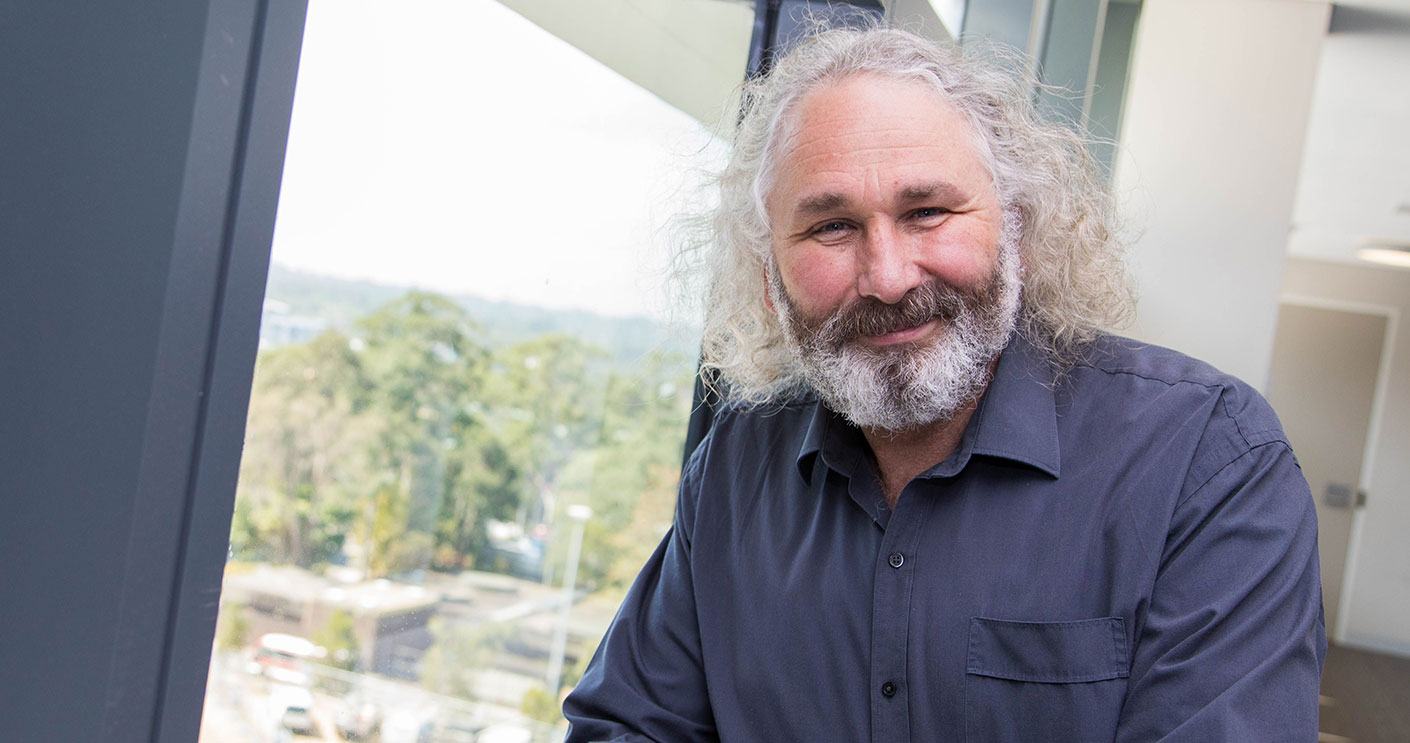Associate Professor Wayne Warburton will be speaking on the neuroscience of screen addiction during Staff Wellbeing Month.
Do you swear to yourself that tonight you’ll read a book, do some exercise or phone that old friend, only to find yourself mindlessly scrolling on social media for hours?
Are your teens constantly checking their phones during family meals? Do you park your toddler in front of the TV for long stretches so you can get things done around the house?
You’re not alone. Many Australians are exceeding recommended daily limits for recreational screen time, with the numbers particularly concerning amongst children and teens (things are even scarier in the USA, where teens spend more than 7 hours a day on recreational screen use).
Wayne Warburton is a qualified psychologist and an Associate Professor of developmental psychology in the Department of Psychology, where his research focuses on the impacts of media on children and young adults.
He’ll be speaking at Staff Wellbeing Month about the neuroscience behind screen addiction and providing advice to staff who are looking to create a healthier ‘screen-life balance’ in their homes.
“The vast majority of people who use screens – even fairly heavy users – typically manage a normal, healthy life where screen use mostly enhances their life,” Wayne points out. “But some people have trouble limiting their use – for example, around about 10 per cent of children and teens can be defined as problematic users, where their level of screen use has a serious negative impact on a key area of life.”
Warburton recommends thinking about your family’s screen time in the same way you think about your family’s diet and nutrition.
“Like a healthy food diet, healthy screen use is about moderation in amount and a content mix that is both age-appropriate and – like the healthy food pyramid – emphasises more of the good stuff (like prosocial and educational media) and less of the less-good stuff (like violent, antisocial or mind numbing media).”
One great tool that Warburton recommends for families is healthychildren.org’s Family Media Plan.
“These kinds of tools are very useful for establishing household rules around screen time,” he says. “Things like keeping screens out of the bedroom at night and putting as much time as possible between screen use and sleep time – having these clear expectations in the form of a family agreement can be a great way to achieve that screen-life balance.”
Register on the Staff Wellbeing Month website for Wayne’s lunchtime webinar Can you really be addicted to a screen? Neuroscience says yes on Tuesday 1 September.
Other lunchtime webinar topics include weight management (9 September), everyday habits for emotional health (10 September), LGBTIQ+ emotional wellbeing in the workplace (15 September) and a professional athlete’s advice on health and wellbeing (17 September).
All webinars will also be recorded and uploaded to the staff wellbeing What’s on page.


 Back to homepage
Back to homepage
Comments
We encourage active and constructive debate through our comments section, but please remain respectful. Your first and last name will be published alongside your comment.
Comments will not be pre-moderated but any comments deemed to be offensive, obscene, intimidating, discriminatory or defamatory will be removed and further action may be taken where such conduct breaches University policy or standards. Please keep in mind that This Week is a public site and comments should not contain information that is confidential or commercial in confidence.